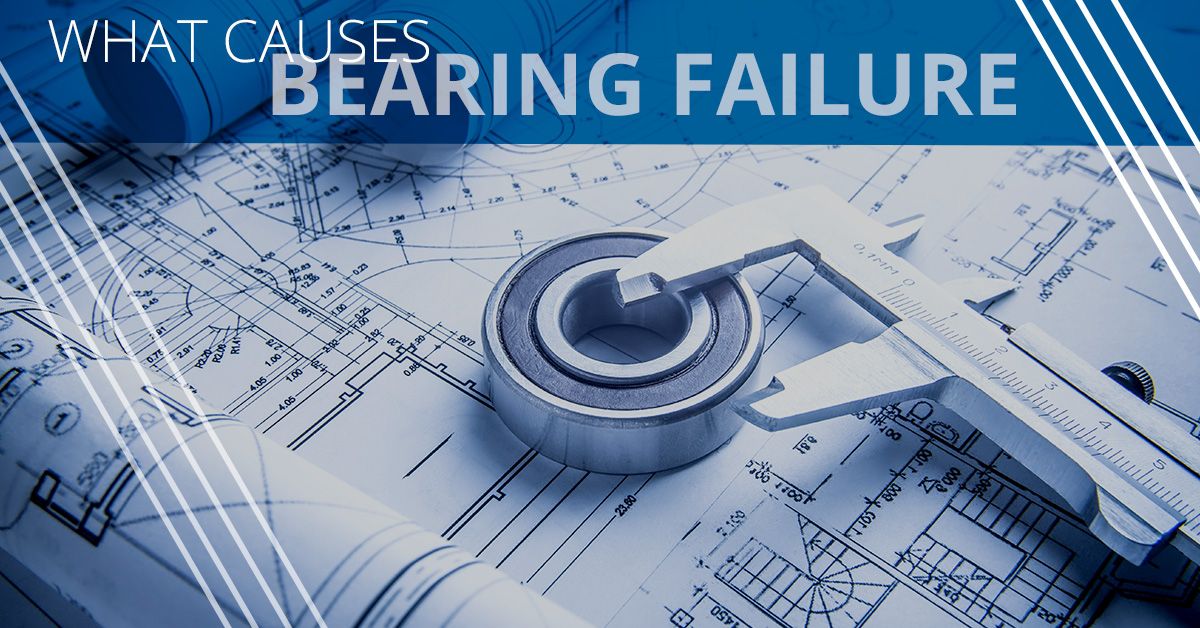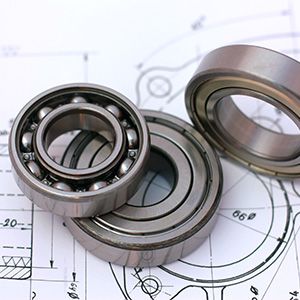Ball bearing failure can cause a whole host of problems. Ball bearings are small parts that play an incredibly important role, and when a ball bearing fails to meet its performance expectations or its life span, it can cause many different problems.
HCH BEARING
DEEP GROOVE BALL BEARING MANUFACTURER

What Causes Bearing Failure
Ball bearing failure can cause a whole host of problems.
Ball bearings are small parts that play an incredibly important role, and when a ball bearing fails to meet its performance expectations or its life span, it can cause many different problems. These problems include higher maintenance costs, added down time, missed deliveries and a loss of revenue. Luckily, when you know what causes ball bearing failure in the first place, you can take steps to prevent it. Here are the most common reasons why ball bearings fail:
#1. Improper Lubrication
Proper lubrication is essential for ball bearings, and a recent study found that as much as 80 percent of bearing failure is due to improper lubrication. Not only does this include insufficient lubrication, but it also includes lubrication degrading caused by excessive temperatures and the use of the wrong lubricant. Signs of bearing damage caused by improper lubrication include excessive wear inside the bearing, overheating and discolored rolling elements.

#2. Foreign Particles
Foreign particles, like grit, dirt, steel chips, dust and even lint are some of the most common reasons for pitting and wearing in ball bearings. Typically, this occurs when bearing cleaning solutions and lubricants are contaminated, or from dirty tools or hands. Make sure your hands, tools and work area are always clean, and filter your lubrication and cleaning solutions to prevent contamination.
#3. Misalignment
When your ball bearings are misaligned, it can lead to separator failure, as well as overheating. Out-of-square spacers, shoulders and clamping nuts can all cause misalignment, as well as bent shafts. To watch for misaligned ball bearings, watch for an unparalleled wear path to the raceway edge. To prevent your ball bearings from becoming misaligned, inspect the housings and shafts of bearing seats and shoulders for runout, and always make sure that you use precision-grade locknuts.
#4. Improper Mounting
In almost every case, ball bearings need to be mounted on a rotating ring with a press fit. There are a wide range of conditions that can cause bearings to become misaligned from denting, cracked rings, wear and high operating temperatures. A poor finish on the bearing seat and out-of-round housings, too-tight fits, too-loose housing fits and loose shaft fits are just a few examples of improper mounting that can cause bearing failure. To avoid improper mounting in the future, always make sure that you follow all of the proper mounting instructions and make sure all of your employees know how to spot the difference between properly mounted bearings and improperly mounted bearings.
#5. Corrosion
Acid, excessive moisture, old or low-quality grease, condensation from too many temperature reversals and poor wrappings can all cause corrosion. If you’ve noticed brown or red stains, or other deposits on raceways, rolling elements or cages, then you probably have a corroded ball bearing on your hands. To avoid corrosion, always divert any corrosive fluids away from bearing areas, and utilize external seals and integrally sealed bearings for environments with lots of corrosive materials. Furthermore, using the right kind of bearing materials, like stainless steel bearings, can help you prevent corrosion.
Turn to HCH Bearings Americas for all of your ball bearing needs.
Understanding the many causes of ball bearing failure will help you avoid it in the future, and in out next blog, we’ll be touching on a few more of the causes of ball bearing failure. Make sure that you stay tuned to learn more, and in the meantime, turn to HCH Bearings Americas for all of your ball bearing needs. No matter what industry you are in or what kind of ball bearings you’re looking for, we’ve got you covered. Contact us today to get started.

